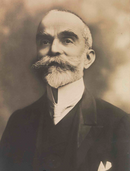The modern state of Guinea did not come into existence until 1958, but the history of the area stretches back well before European colonization. Its current boundaries were determined during the colonial period by the Berlin Conference (1884–1885) and the French, who ruled Guinea until 1958.
People have inhabited the region now known as Guinea-Bissau for thousands of years. In the 13th century, it became a province of the Mali Empire that later became independent as the Empire of Kaabu. Portugal claimed the region beginning in the 1450s. During most of this period, Portuguese control of the region was limited to a number of forts along the coast. Portugal gained full control of the mainland after the pacification campaigns of 1912–15. The offshore Bijago islands were not colonised until 1936. After independence in 1974, the country was controlled by a single-party system until 1991. The introduction of multi-party politics in 1991 brought the first multi-party elections in 1994. A civil war broke out from 1998 to 1999.

The islands of São Tomé and Príncipe were uninhabited at the time of the arrival of the Portuguese sometime between 1469 and 1471. After the islands were discovered by the explorers João de Santarém and Pêro Escobar, Portuguese navigators explored the islands and decided they would be a good location for bases to trade with the mainland.
2024 (MMXXIV) is the current year, and is a leap year starting on Monday of the Gregorian calendar, the 2024th year of the Common Era (CE) and Anno Domini (AD) designations, the 24th year of the 3rd millennium and the 21st century, and the 5th year of the 2020s decade.

The Brazilian Democratic Movement is a Brazilian political party. It is considered a "big tent party" and it is one of the parties with the greatest representation throughout the national territory, with the most numbers of senators, mayors and city councillors, always having formed a large part of the National Congress since 1988, and also has the largest number of affiliates, with 2,043,709 members as of July 2023.

The President of the Reich was the German head of state under the Weimar constitution, which was officially in force from 1919 to 1945. In English he was usually simply referred to as the President of Germany.
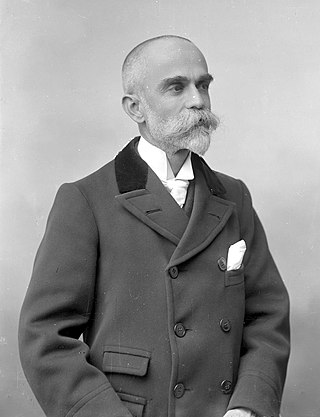
Bernardino Luís Machado Guimarães, GCTE, GCL, was a Portuguese political figure, the third and eighth president of Portugal.

Manuel Teixeira Gomes, GCSE was a Portuguese politician and writer who served as the seventh president of Portugal between 5 October 1923 and 11 December 1925.
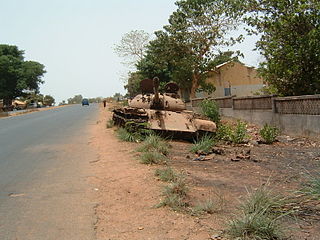
The Guinea-Bissau Civil War was fought from 7 June 1998 to 10 May 1999 and was triggered by an attempted coup d'état against the government of President João Bernardo Vieira led by Brigadier-General Ansumane Mané. Government forces, backed by neighbouring states, clashed with the coup leaders who had quickly gained almost total control over the country's armed forces.

Arturo Fortunato Alessandri Palma was a Chilean political figure and reformer who served thrice as president of Chile, first from 1920 to 1924, then from March to October 1925, and finally from 1932 to 1938.
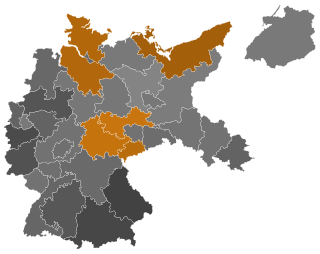
Presidential elections were held in Germany on 13 March 1932, with a runoff on 10 April. Independent incumbent Paul von Hindenburg won a second seven-year term against Adolf Hitler of the Nazi Party (NSDAP). Communist Party (KPD) leader Ernst Thälmann also ran and received more than ten percent of the vote in the runoff. Theodor Duesterberg, the deputy leader of the World War I veterans' organization Der Stahlhelm, ran in the first round but dropped out of the runoff. This was the second and final direct election to the office of President of the Reich, Germany's head of state under the Weimar Republic.
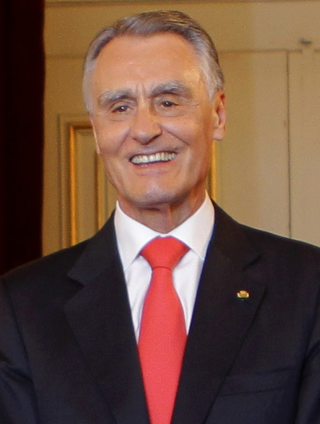
Presidential elections were held in Portugal on 22 January 2006 to elect a successor to the incumbent President Jorge Sampaio, who was term-limited from running for a third consecutive term by the Constitution of Portugal. The result was a victory in the first round for Aníbal Cavaco Silva of the Social Democratic Party candidate, the former Prime Minister, won 50.54 percent of the vote in the first round, just over the majority required to avoid a runoff election. It was the first time in which a right-wing candidate was elected President of the Republic since the 1974 Carnation Revolution.

The presidential line of succession defines who may become or act as President of the Federative Republic of Brazil upon the death, resignation, incapacity or removal from office of the elected president, and also when the president is out of the country or is suspended due to impeachment proceedings.

The 1924 United States presidential election in Pennsylvania took place on November 4, 1924 as part of the 1924 United States presidential election. Voters chose 38 representatives, or electors to the Electoral College, who voted for president and vice president.
First Lady of Portugal is the unofficial title attributed to the wife or Partner of the president of Portugal. To date, there has been no first gentleman of Portugal. The position is currently vacant since the first presidential inauguration of Marcelo Rebelo de Sousa in 2016.

Presidential elections were held in Portugal on 6 August 1923. The Congress of the Republic elected the president in Lisbon instead of the Portuguese people. However the new president Manuel Teixeira Gomes was elected In absentia, meaning that he wasn't present during the election.

General elections were held in Brazil on 7 October 2018 to elect the president, National Congress and state governors. As no candidate in the presidential election received more than 50% of the vote in the first round, a runoff round was held on 28 October.

Presidential elections were held in Portugal on 24 January. The incumbent President, Marcelo Rebelo de Sousa, was reelected for a second term.

General elections were held in Brazil on 2 October 2022 to elect the president, vice president, the National Congress, the governors, vice governors, and legislative assemblies of all federative units, and the district council of Fernando de Noronha. As no candidate for president—or for governor in some states—received more than half of the valid votes in the first round, a runoff election for these offices was held on 30 October. Luiz Inácio Lula da Silva received the majority of the votes in the second round and became president-elect of Brazil.
